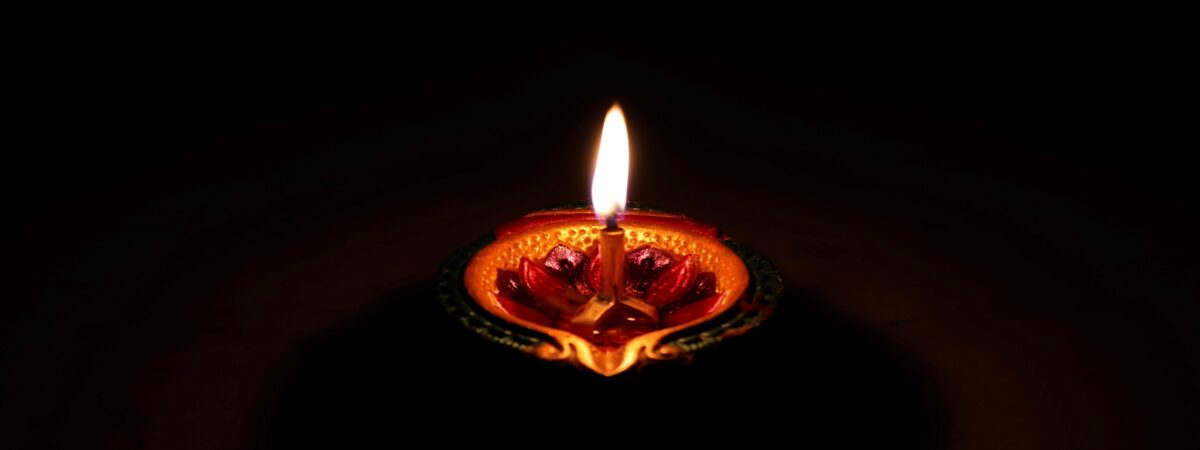A Look Back at Diwali

So many exciting things
have been happening this fall in Galway. Halloween, the setting up of the
Christmas market, the approach of finals…yikes, maybe let’s ignore that for
now. While I know we’re all simultaneously excited about Christmas and dreading
the start of December exams, let’s put all of that on pause for a moment and look
back at one of the major highlights of November. ROPES member Yashika Sharma is
here to take a look back at the festival of Diwali and guide us through its
fascinating origin.
Diwali, more than just a Festival of Lights
This is an experiment for everyone out there: Whenever you meet an Indian on the street, ask them, “What is Diwali?” It is a major possibility that they will respond with: “Diwali is a festival of lights!”
And they are not wrong! It is the festival of lights celebrated by Hindus. Diwali today is all about candles, lights, crackers, and sweets. Many understand it as the day when we pay homage to Gods and Goddesses, inviting them to our homes, thus signifying wealth and prosperity. However, the origin story of Diwali stems from the Indian epic Ramayana.
Ramayana relates the story of Lord Rama and his triumph over the evil King Ravana. Ravana kidnaps Goddess Sita, Rama’s wife, and takes her to his kingdom, which is situated in today’s Sri Lanka. Rama, along with his brother Lakshmana, takes an army full of monkeys and their King to fight the mighty Ravana. His divinity and archery skills become Ravana’s doom, killing each member of his family one by one, and then finally destroying Ravana. Rama then takes Sita back to his kingdom, Ayodhya. In the celebration of the return of their king and queen, citizens of Ayodhya lit oil lamps all over the city. This is the significance of using oil lamps called ‘diyas’ during Diwali festival.
Why were the oil lamps lit, you ask? Because it was the new moon. Therefore, the date for Diwali differs each year.
Ramayana: The importance of the book
Dharma (Duty)
It is said to be auspicious to have a copy of Ramayana at your home. The mythological tale has multiple themes that must be inculcated in day-to-day living to have an ideal life and become an ideal human being. Ramayana is centered around Lord Rama, who is considered to be the icon of ‘dharma’ (duty). Throughout the tale, there are multiple occasions where, as a reader, you might disagree or wonder why Rama decides something or acts the way he does. But the book is clear: “Rama will follow his duty, and so should you.”. This is what Ramayana teaches us; make sure that you are righteous, and follow your duty, even if that means that you have to suffer yourself. While this notion has changed in today’s world, with the importance of personal health and self-love becoming central to our life, honouring our duties towards our family, friends and the world around us sure is fulfilling.
Family
On Diwali, every family comes together, prays to the Gods for health and prosperity, and enjoy the festival together. In Ramayana, we witness the love between brothers Rama and Lakshmana. Rama, Lakshmana, and Sita spent 14 years of exile, living in the woods, without any luxury. It is said that during these 14 years, Lakshmana did not sleep and stood guard over his brother and sister-in-law. When Lakshmana laid injured on the battlefield, Rama’s tears and words for his brother are so moving that you can’t help but shed some of your own. To look at Ravana’s end, we see his brother Kumbhkarana giving his own life, even though he believed that Ravana’s ego has taken him to the path of doom. In contrast, two brothers, Vibhishana and Sugriva, are the cause of their brothers’ death. From this, we learn that it is important to support your family, but it also important to guide them towards the right path.
Triumph of Good over Evil
The most basic trope in all mythological stories: good destroys evil. May it be Zeus and Cronus, Tuatha De Danann and Carman, or Rama and Ravana, we see how good magic always wins over evil. Symbolically, you can take this trope in two ways. First, you might come across a lot of negativity and people that can prove to be toxic in your life. In such a case you need to overcome this by having a positive approach towards life and removing everything evil from it. Second, fighting with your inner inhibitions and winning over them; defeating your dark side. Ravana was said to have 10 heads that symbolized 10 personality traits he had: Lust, Anger, Delusion, Greed, Pride, Envy, Mind, Intellect, Will and Ego. This Diwali, let’s promise ourselves to get over all negative emotions, and stay happy and healthy.
If you would like to read more on Ramayana, here are some recommendations:
1. ‘Maryada’ by Arshia Sattar
2. ‘Sita: An Illustrated Retelling of Ramayana’ by Devdutt Pattanaik
3. ‘The Ramayana: A Shortened Modern Prose Version of the Indian Epic’ by R. K. Narayana
4. ‘The Ramayana: A Modern Retelling of the Great Indian Epic’ by Vālmīki, Ramesh Menon
Alright, we are done with Diwali. Alexa, play ‘All I Want for Christmas’ by Mariah Carey.
